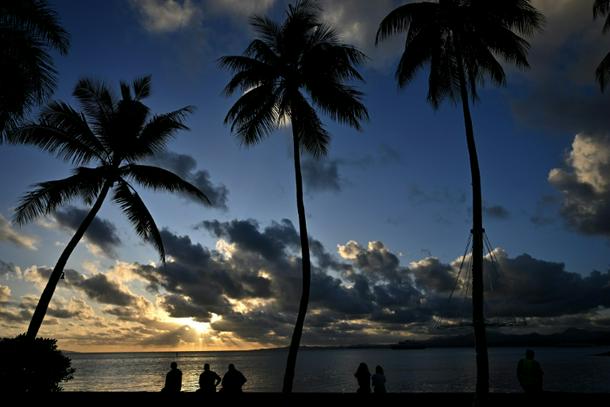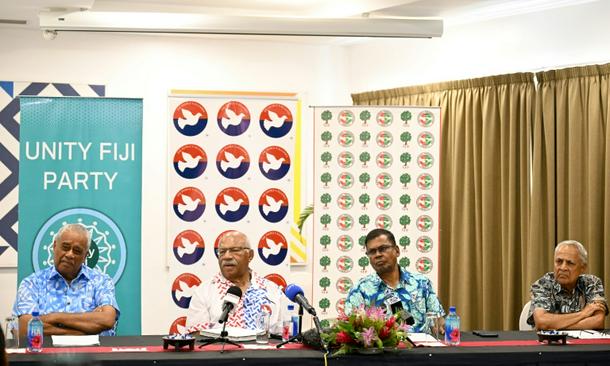
Already threatened by rising sea levels, Fiji was the first country to ratify the Paris climate agreement in 2016
Suva (Fiji) (AFP) - Fiji’s under-fire elections office is poised to announce the final results of a cliffhanger vote Sunday, after a campaign marked by allegations of fraud and calls for the military to intervene.
Rival ex-coup leaders Prime Minister Frank Bainimarama and former prime minister Sitiveni Rabuka are neck-and-neck with almost 99 percent of stations reporting.
The final results are now expected around 2:00 pm (0200 GMT), several hours later than initially planned.
It has been a tumultuous few days in the South Pacific archipelago nation.
After polls closed Wednesday, opposition leader Rabuka claimed “anomalies” in the count and asked the country’s powerful military to step in.
He was then hauled in for questioning by detectives. On his release, he told AFP it was part of a government effort to intimidate him.
“The way this government has operated, we’ve been talking about a climate of fear. This is how they instil that fear,” he said.
Incumbent Bainimarama – who seized power 16 years ago in a putsch – was on Sunday morning deadlocked with Rabuka’s coalition, both projected to fall two seats short of the 28 needed for a parliamentary majority.

(L-R) Unity Fiji leader Savenaca Narube, People's Alliance leader Sitiveni Rabuka, National Federation Party leader Biman Prasad and former premier and leader of the Fiji Labour Party Mahendra Chaudhry attend a press conference December 17, 2022
Deeply Christian Fijian businessman Viliame Gavoka and his Social Democratic party look set to play kingmaker, and negotiations with both major parties are already underway.
A Social Democratic official said the party was locked in discussions with Bainimarama’s Fiji First party when AFP visited the campaign headquarters on Sunday morning.
Rabuka’s People’s Alliance kicked off negotiations late Saturday night – a major sticking point being whether Rabuka would serve as prime minister.
Gavoka has fallen out with Bainimarama in the past, but has a particularly tense relationship with Rabuka, who he replaced as leader of the Social Democrats.
The vote holds regional significance – Bainimarama has been close with Beijing, while both Rabuka and Gavoka have signalled their desires to loosen Fiji’s ties to China.
Fiji has been upended by four coups in the past 35 years, and many on the streets of its capital, Suva, had hoped in vain for a smooth election.
The trouble started early Thursday morning when what the election officials called a technical “anomaly” knocked results offline for four hours.
By Friday, six opposition leaders including Gavoka were calling for counting to be stopped pending an independent “forensic audit”.
Rabuka, a two-time coup leader and former Commonwealth Games shotputter nicknamed “Rambo”, was then called in for police questioning late Friday night.
Military commander Jone Kalouniwai rebuffed Rabuka’s plea.
Fiji Labour Party leader Mahendra Chaudhry – a former prime minister ousted in a coup – on Saturday repeated claims that the election had been undermined by voter fraud.
Election supervisor Mohammed Saneem hit back, saying Chaudhry had provided no evidence.
“Mr Chaudhry has made a grand claim about voter fraud,” he told reporters at the national vote centre.
“This is serious ladies and gentlemen. Step up with the evidence.”
Ex-navy commodore Bainimarama legitimised his government through election wins in 2014 and 2018 – but his majority has shrunk each time.
Fiji spans more than 300 tropical islands but has a population of just shy of one million people.
Still, it is one of the South Pacific’s major players and a powerful voice in the global debate on climate change.
Already threatened by rising sea levels, Fiji was the first country to ratify the Paris climate agreement in 2016.